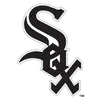
 Cubs
Cubs White Sox
White Sox Cubs
Cubs White Sox
White Sox
 Cubs
Cubs White Sox
White Sox
 Cubs
Cubs White Sox
White Sox
 Cubs
Cubs White Sox
White Sox
 Cubs
Cubs White Sox
White Sox
 Cubs
Cubs White Sox
White SoxFull Schedule
7/28
11:30 pm
CHSN
7/29
11:30 pm
CHSN
7/30
6:00 pm
CHSN
8/2
1:30 am
CHSN
8/3
2:00 am
CHSN
8/3
8:00 pm
CHSN
8/6
1:30 am
CHSN
8/7
1:30 am
CHSN
8/7
8:00 pm
CHSN
8/8
11:30 pm
CHSN
8/9
11:00 pm
CHSN
8/10
6:00 pm
CHSN
8/11
11:30 pm
CHSN
8/12
11:30 pm
CHSN
8/13
6:00 pm
CHSN
8/16
12:00 am
CHSN
8/16
11:00 pm
CHSN
8/17
6:00 pm
CHSN
8/18
11:00 pm
CHSN
8/19
11:00 pm
CHSN
8/20
11:00 pm
CHSN
8/22
11:30 pm
CHSN
8/23
11:00 pm
CHSN
8/24
6:00 pm
CHSN
8/25
11:30 pm
CHSN
8/26
11:30 pm
CHSN
8/27
11:30 pm
CHSN
8/28
11:30 pm
CHSN
8/29
11:30 pm
CHSN
8/30
11:00 pm
CHSN
8/31
6:00 pm
CHSN
9/1
6:00 pm
CHSN
9/2
11:30 pm
CHSN
9/3
CHSN
9/4
11:30 pm
CHSN
9/5
10:30 pm
CHSN
9/6
10:00 pm
CHSN
9/7
5:30 pm
CHSN
9/9
11:30 pm
CHSN
9/10
11:30 pm
CHSN
9/11
6:00 pm
CHSN
9/12
11:00 pm
CHSN
9/13
10:00 pm
CHSN
9/14
5:30 pm
CHSN
9/15
11:30 pm
CHSN
9/16
11:30 pm
CHSN
9/17
6:00 pm
CHSN
9/19
11:30 pm
CHSN
9/20
11:00 pm
CHSN
9/21
6:00 pm
CHSN
White Sox Game Replays










